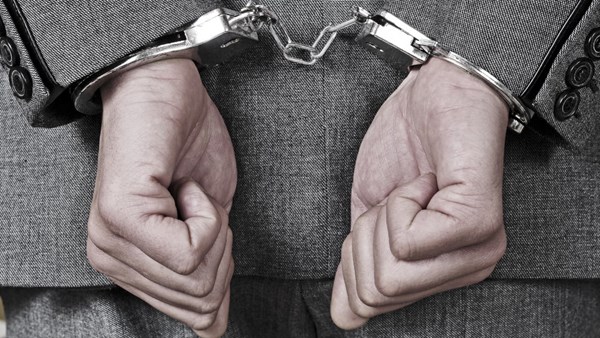Defendant held in Germany in 'Russian Embassy cocaine case' refuses extradition to Russia
The defendant in the recent “cocaine case,” Andrei Kovalchuk is in a Berlin prison awaiting his trial. It turns out that despite having a Russian passport Kovalchuk did not officially obtain citizenship of the Russian Federation, Rosbalt news outlet reports. Kovalchuk considers himself a “citizen of the world”. He continues to maintain his innocence, insisting that he was the victim of provocation.
According to Rosbalt, Andrei Kovalchuk is now being held in Moabit prison in Berlin that has a rich history. Its “residents” were Stepan Bendera, spy Mikhail Kostevich, communist Karl Radek, Ernst Thälmann and Erich Honecker at different times. This penitentiary facility has many buildings separated in various directions in a star-shaped pattern. The doors and bars of each building are painted one certain color.
Kovalchuk is being held in the ward populated mostly by citizens of the former USSR: Georgians, Armenians, Uzbekistanis, Ukrainians, etc. He has been placed in a double cell together with a native of Chechnya internationally wanted by Russia for a crime committed in Sochi.
Moabit prison follows a decent daily routine. Ten to twelve prisoners at a time are taken for a walk to the yard with lawns and small trees. Then they have lunch and leisure time. From 16 to 19 prisoners have the right to move freely around their building where they have TV, table tennis and other diversions. There are almost no security personnel. Prisoners themselves meet visitors and walk around with them. There are also doctors in the prison, including a dentist.
Given his current living conditions, it is not surprising that Kovalchuk is in no hurry to go to a Russian pre-trial detention center. The conditions there are radically different from those in the prison of Berlin. The defendant in the high-profile case refused voluntary extradition to Russia and now the request of the Prosecutor’s General Office of the Russian Federation for his extradition will be considered by the court.
According to Rosbalt, German lawyers intend to maintain several positions in court. They will refer to the serious illnesses of Kovalchuk’s wife and child living in Germany. Andrei himself is the family’s only source of income. The defense also intends to prove that in Russia, he will not be provided with the conditions of detention covered by the European standards, and that it could pose a serious threat to him.
Interestingly, Kovalchuk had in his possession Russian and foreign passports. However, it is not clear now he got them. Andrei Kovalchuk is not listed as a Russian citizen in the Federal Migration Service. According to the legislation, as of February 6, 1992, individuals who lived permanently in the Russian Federation had the right to automatically acquire citizenship regardless of where they were born.
In contrast, Kovalchuk himself stated that from 1991 to 1995 he worked and constantly lived in Germany. That is why he could not be automatically granted Russian citizenship. He was born in the Ukrainian SSR. Now it turns out that officially, Kovalchuk does not have any citizenship at all.
Vladimir Zherebenkov, Kovalchuk’s lawyer told Rosbalt that his client continues to deny his guilt. “His luggage was in the buildings of the Embassy for a year and a half, a considerable number of employees of the Embassy knew about it. My client states that he had coffee in his luggage but that the products could have been easily replaced during the long period of storage. We cannot rule out that it was done for provocations.”
